CAMP VICTORY, Iraq - Silence fell across the Al Faw Palace rotunda. The crowd of uniformed service members, civilian dignitaries, and a small army of journalists who filled the main floor focused on the men who had taken up positions beneath an enormous white flag emblazoned with the symbol of United States Force-Iraq. Onlookers crowding the balconies above leaned forward.
As Gen. Raymond T. Odierno transferred leadership of USF-I to Gen. Lloyd J. Austin III, the world seemed to be watching.
Under the gaze of Vice President Joseph Biden, Secretary of Defense Robert Gates and Adm. Mike Mullen, chairman of the Joint Chiefs of Staff, Odierno passed the USF-I colors to the ceremony's presiding officer, Marine General James Mattis, U.S. Central Command commander, and relinquished his command of U.S. forces in Iraq.
Mattis turned and presented the colors to Austin, charging him with the responsibility of leading the U.S. military in a new campaign and a new mission in Iraq.
Austin, a veteran combat commander with a reputation for leading from the front, takes command of USF-I as seven years of combat operations under Operation Iraqi Freedom come to an end and Operation New Dawn re-focuses the efforts of the remaining American troops on stability operations.
The change of command also marked the departure of Odierno, a man who has spent 56 months in Iraq as a division, corps and theater commander. He helped plan and execute the troop surge that turned the tide of the insurgency and gave the Iraqi Security Forces the breathing room to develop and led to the improved security that allowed the U.S. to draw down its forces to fewer than 50,000.
"This change of mission, to state the obvious, would never have been possible without the resolve and tremendous sacrifice and competence of our military, the finest, if our Iraqi friends will forgive us, the finest fighting force in the world," Biden said, as he opened the ceremony.
Following the symbolic hand-off of the colors, Gates welcomed Austin to his new job.
"As America was fortunate to have General Odierno in the wings two years ago, we are fortunate to have Lloyd Austin ready to take the baton from him one more time today," Gates said. "Whether leading troops at every level of command or more recently as the director of the Joint Staff, Lloyd Austin, like Ray Odierno, has always led by example."
Austin will lead USF-I as it focuses on the mission of advising and assisting the Iraqi Security Forces, protecting and supporting the efforts of civilian, military and non-governmental agencies to build the civil capacity of Iraq, and in partnering with the Iraqi military in operations aimed at maintaining pressure on terrorist networks.
"It is my sincere honor to return to this great country to serve once more with my Iraqi friends," Austin said in a deep voice that resonated in measured tones throughout the palace. "And to all the Soldiers, Sailors, Airmen and Marines, Coast Guard and civilians serving under United States Forces-Iraq, it is indeed my honor and a distinct privilege to serve with you as we undertake the next phase of our effort in Iraq."
Austin's command of USF-I marks his third tour in Iraq. He first came here with the 3rd Infantry Division during the 2003 invasion and, as assistant division commander for maneuver he earned a Silver Star for valor while leading the division's march to Baghdad.
He returned in 2008 as the commander of XVIII Airborne Corps, and relieved Odierno as the commander of MNC-I. At the time, U.S. and multinational forces were beginning to drawdown from the height of the surge and the mission of the U.S. military began its gradual shift from combat to stability operations.
Biden welcomed Austin to his post, but paid tribute to his predecessor as well.
"On the last day of his command, I'd like to especially thank General Ray Odierno," Biden said. "This man is not only a warrior, but a diplomat in the best American tradition.
"I want to thank him for his exceptional, and I'm not exaggerating, exceptional service. More than four years leading forces here and working closely with Iraqi political leaders, many of them sitting here today. I think they will all acknowledge that they had absolute, complete faith and trust in this man."
Odierno has been the towering figure many have seen as the face of America's recent strategy in Iraq.
"If there's one lesson I've taken from our involvement here," Odierno told the crowd in his farewell address, "it is the sheer magnitude of what we are capable of when we trust in ourselves, remained focused on our commitment and work side by side, arm in arm with our Iraqi partners and our civil military team."
Odierno saw the fall of Saddam Hussein's regime as the commander of the 4th Infantry Division in 2003. That December, Hussein was caught at Adwar by Soldiers of his division's 1st "Raider" Brigade.
He returned to Iraq as the commander of III Corps in Dec. 2006, and took command of MNC-I. He worked with Gen. David Petraeus, who took command of Multinational Forces-Iraq the following February, to develop and implement the surge.
After a seven month break from Iraq, Odierno returned to relieve Petraeus as commander of MNF-I in Sept. 2008. Since then he worked to implement the requirements of the bi-lateral security agreement; overseeing the withdrawal of troops from the cities, the consolidation of MNF-I and five other major commands into USF-I and witnessing the success of the Iraqi Security forces as they proved their mettle by securing 7,599 polling sites during the parliamentary elections in April of this year.
Odierno credited all troops who served under him for making those accomplishments happen.
"We stood together through difficult times, we fought together, we laughed together and sometimes we cried together. We stood side by side and shed blood together," he said. "But it was for the shared ideals of freedom, liberty and justice."
Before leaving the stage following a standing ovation, Odierno expressed his faith in the man who was taking over for him.
"I remain supremely confident that General Lloyd Austin will carry on our legacy of positive change for the Iraqi people," he said.
"His incredible reputation of professionalism and dedication precedes him. And U.S. Forces-Iraq is in great hands at this important juncture. There is simply no one more qualified."
As the ceremony drew to a close, Austin spoke realistically about the challenges that lay ahead, and reaffirmed the dedication of U.S. forces to help Iraq develop into a stable and secure nation.
"Although challenges remain, we will face these challenges together. Iraq still faces a hostile enemy who is determined to hinder progress,"he said. "Iraq's enemies will continue to seek opportunities to pursue their objectives, but make no mistake, our military forces here, and those of the Iraqi nation remain committed to ensuring that our friends in Iraq succeed and we will demonstrate our commitment through a continued partnership with the Iraqis. We will help the Iraqis develop their capability to provide for their own national defense."


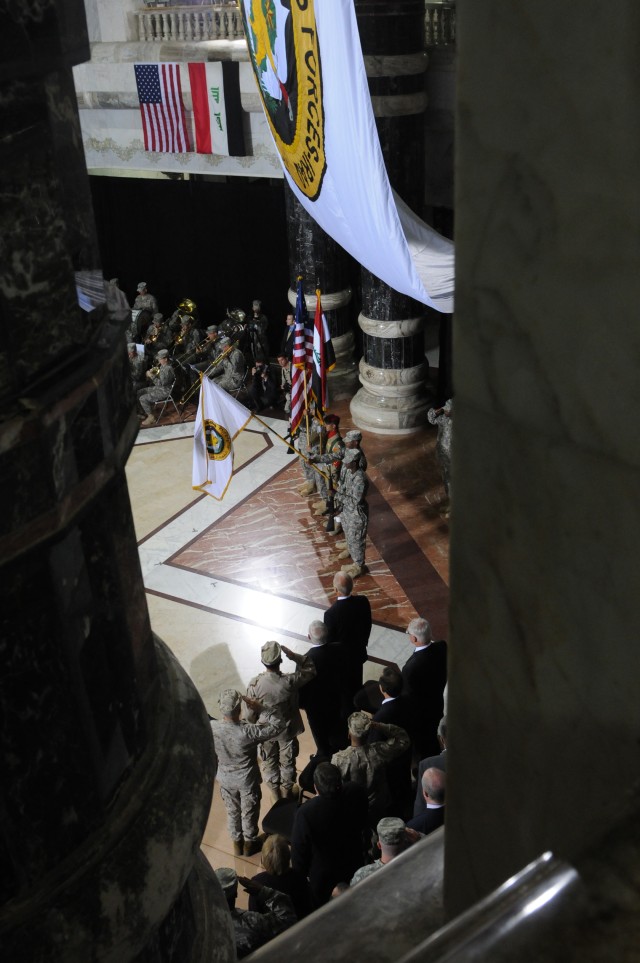
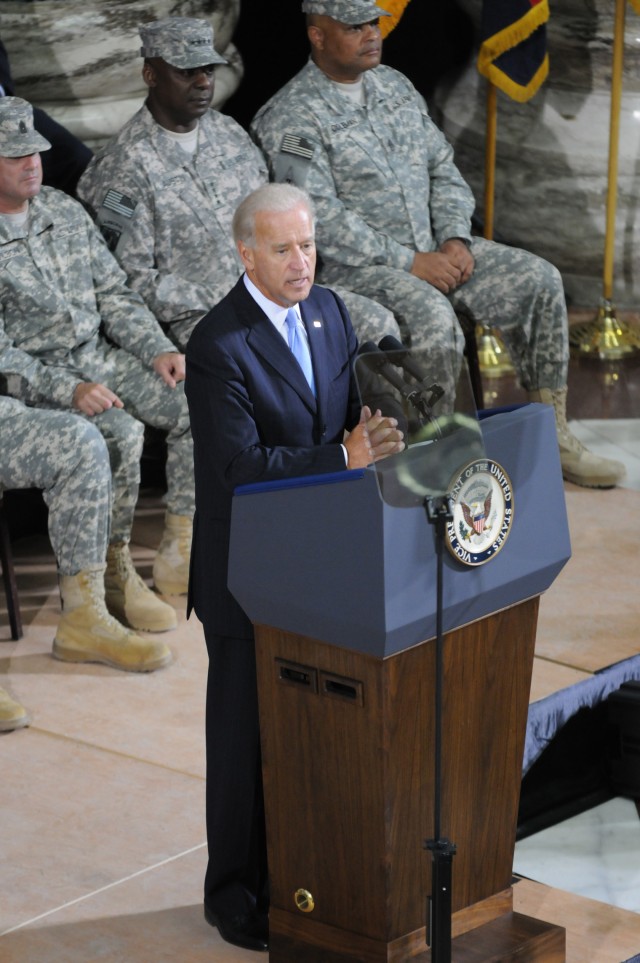
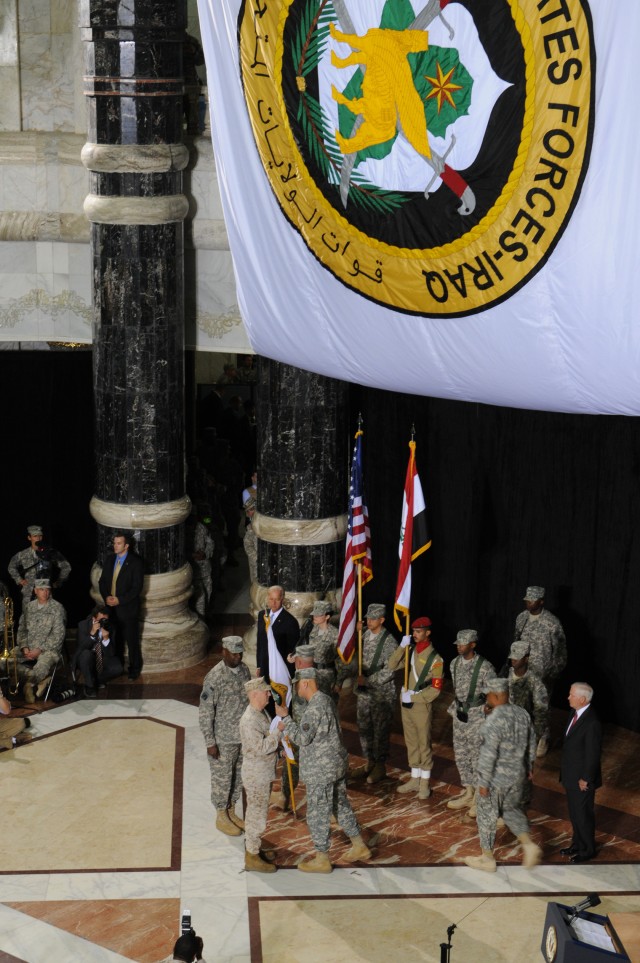
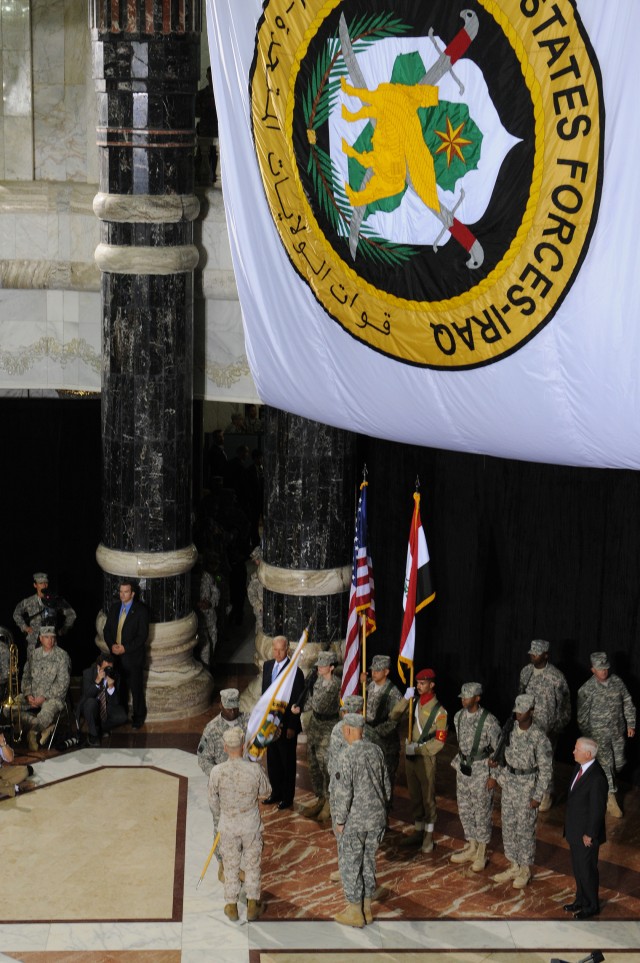
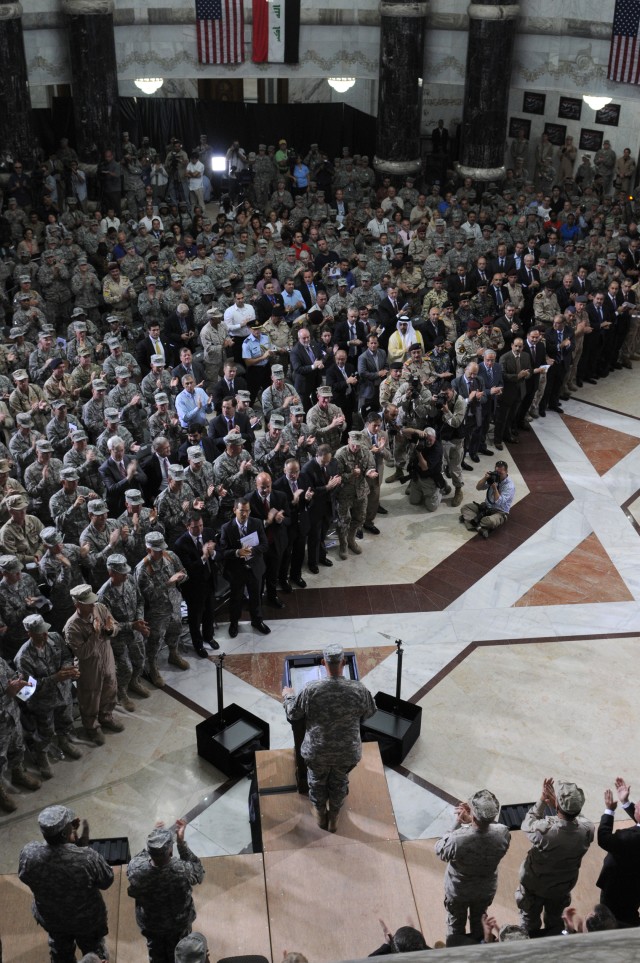
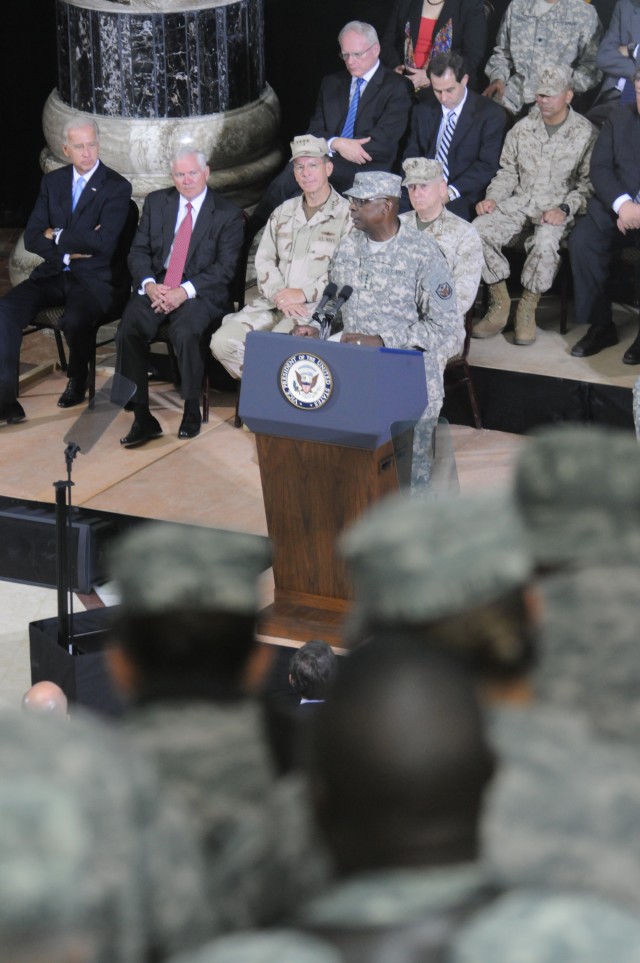


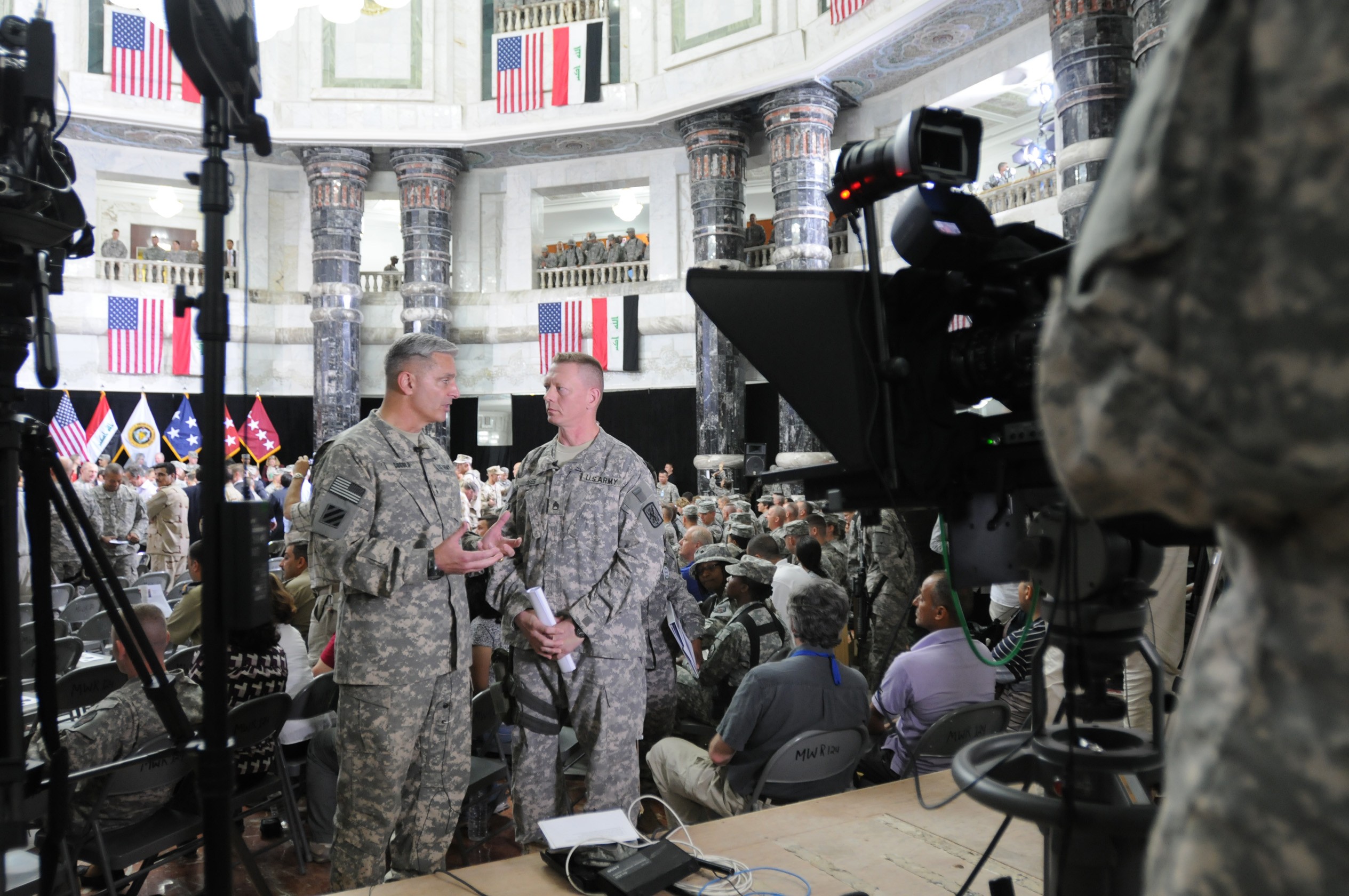






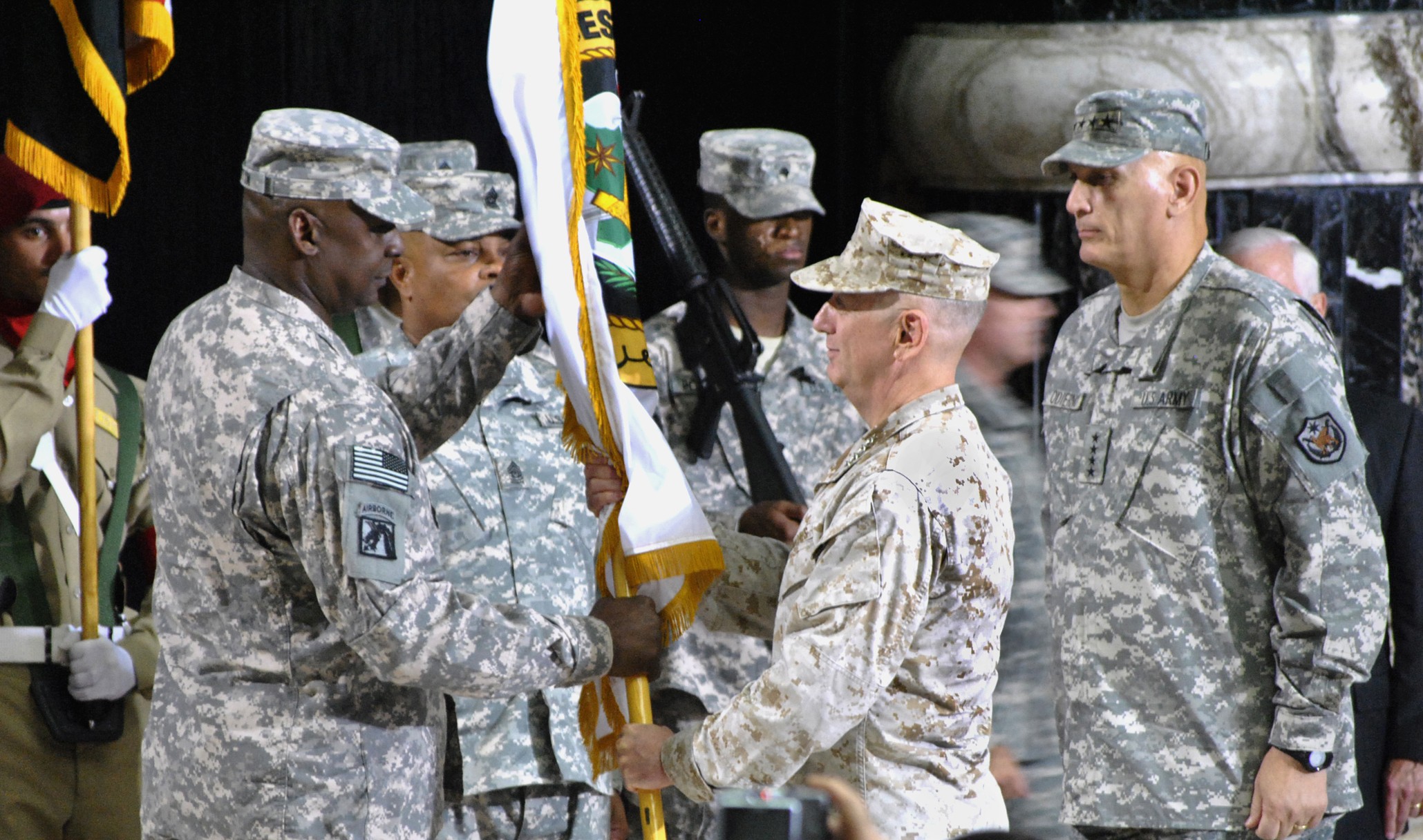
Social Sharing